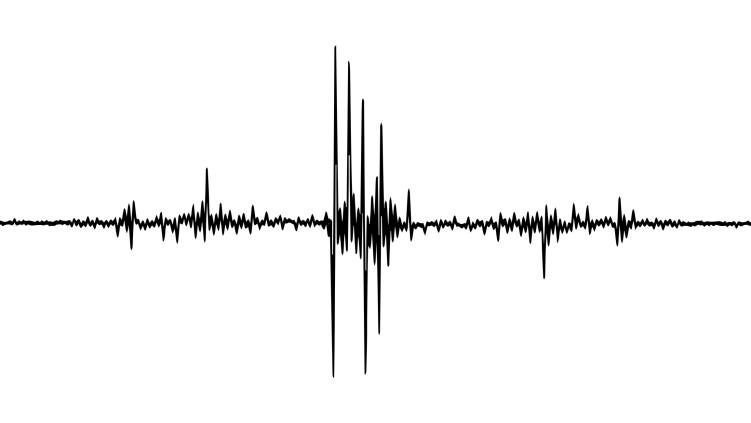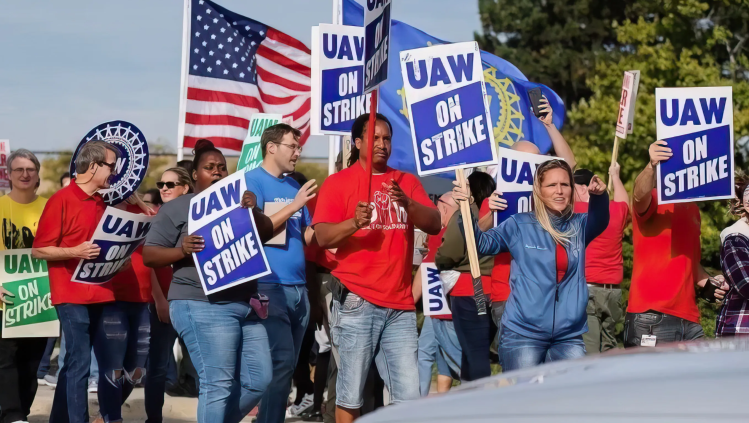Hope all goes well… Dusted off an anecdote from June 2018, when the multi-decade trend toward ever lower inflation rates had started to shift. The process that started back then appears far from over (see below). I take the late summer off from writing, to squeeze in some reading. Recharge. Hoping the same for you. All the very best, Eric
Week-in-Review: Mon: PBOC cuts 1y LPR by 10bp (5y unch) / smaller than mkt was expecting / CNH funding curve squeezed higher after much stronger than exp fix, N. Korea tests cruise missile as US/SK annual military drills begin, Russia’s uncrewed spacecraft crashed while attempting to land on moon’s south pole, CA braces for impact from tropical storm Hilary, Turkey curbs the use of FX protection tool by forcing banks to hold more govt bonds if FX protected deposits don’t decline, Germany PPI -6% (-5.1%e), S&P +0.7%; Tue: PBOC sets yuan fixing at widest differential to exp on record, Ex-BOJ official suspects no intervention until 150 on USDJPY, S&P downgraded outlook for several US banks, US lifts restrictions on 27 Chinese firms ahead of Commerce Secretary Raimondo’s trip next week, Trump agrees to surrender to authorities in Atlanta on Thursday, Fed’s Barkin discussed a reacceleration scenario that wasn’t on the table a few months ago, US Existing Home Sales 4.07m (4.15m exp), UK public borrowing ex banks 4.3b (5.0b exp), US Richmond Fed mfg -7 (-10e), S&P -0.3%; Wed: Russia’s Prigozhin dies in plane crash, NVDA surpasses expectations in earnings release after the close, EU PMI’s spark fears of EU recession, US GOP candidates (sans Trump) engage in first debate, India successfully lands spacecraft on moon’s south pole, Brazil’s lower house approves fiscal rules to cap spending, New Zealand ret sales -1% QoQ (-0.4%e), South Africa CPI 4.7% (4.9%e) / Core 4.7% (4.9%e), Eurozone mfg PMI 43.7 (42.7e) / serv 48.3 (50.5e) / composite 47 (48.5e), UK mfg PMI 42.5 (45.0e) / serv 48.7 (51e) / comp 47.9 (50.4e), US mfg PMI 47.0 (49.0e) / serv 51 (52.2e) / comp 50.4 (51.5e), US New Home Sales 714k (703k exp), EU cons conf -16 (-14.5e), S&P +1.1%; Thu: US equity mkt fails to hold onto NVDA induced rally, Trump surrenders in Atlanta court, Turkey CB hiked rates 750bp (250bp exp), BOK unch as exp, Indonesia CB unch as exp, Japan releases treated wastewater from Fukushima for first time since the 2011 disaster / China suspends all seafood imports from Japan, fears of strikes at Australian LNG facility ease causing EU nat gas prices to come off, BRICS leaders invite Saudi Arabia / Iran / Argentina / UAE to join the bloc in a push to expand its global influence, rumors of growing problems with Chinese LGFV gain steam, Fed’s Harker thinks hikes are done / Collins unsure if rates have peaked but they’ll stay high for substantial period, Poland unemp 5% as exp, Poland cons conf -22.3 (-23.4e), US Initial Jobless Claims 230k (240k exp), US Chicago Fed Nat Activity Index 0.12 (-0.22e), US Durable Goods Orders -5.2% (-4.0%e), US KC Fed mfg activity 0 (-10e), S&P -1.4%; Fri: Powell strikes balanced tone at highly anticipated Jackson Hole speech, ECB’s Lagarde says ECB to set rates as high as necessary for inflation to return to target, Fed’s Harker says rates are restrictive but needs to stay there to bring inflation down, PBOC tells banks to limit Bond Connect outflow / urge pension funds to increase allocation to domestic equities, Trump’s criminal trial in GA to start 10/23, Trump posts on ‘X’ for first time since his 2021 ban was reversed, UK cons conf -25 (-29e), Tokyo CPI 2.9% (3.0%e) / Core CPI 4% as exp, Germany final 2Q GDP -0.6% as exp, Germany IFO Exp 82.6 (83.6e), Brazil IPCA inf 4.24% (4.12%e), US U. of Mich. Sentiment 69.5 (71.2e) / 1y infl exp 3.5% (3.3%e) / 5-10y infl exp 3% (2.9%e), S&P +0.7%.
Weekly Close: S&P 500 +0.8% and VIX -1.62 at +15.68. Nikkei +0.6%, Shanghai -2.2%, Euro Stoxx +0.7%, Bovespa +0.4%, MSCI World +0.5%, and MSCI Emerging +0.7%. USD rose +1.7% vs Russia, +1.2% vs Sterling, +0.9% vs Ethereum, +0.7% vs Yen, +0.7% vs Euro, +0.7% vs Bitcoin, +0.7% vs Sweden, +0.4% vs Canada, +0.1% vs Indonesia, flat vs China, and flat vs Australia. USD fell -2.7% vs Chile, -2.1% vs Turkey, -1.9% vs South Africa, -1.9% vs Brazil, -1.8% vs Mexico, and -0.5% vs India. Gold +1.2%, Silver +6.6%, Oil -1.0%, Copper +1.2%, Iron Ore +3.7%, Corn -1.0%. 10yr Inflation Breakevens (EU -5bps at 2.32%, US +1bp at 2.32%, JP +4bps at 1.14%, and UK -4bps at 3.74%). 2yr Notes +14bps at 5.08% and 10yr Notes -2bps at 4.24%.
Year-to-Date Equities (high to low): Argentina +58.1% priced in US dollars (+212.3% priced in pesos), Greece +40.9% priced in US dollars (+39.8% priced in euros), Hungary +36.8% in dollars (+30% in forint), NASDAQ +29.8% in dollars, Mexico +27.6% in dollars (+9.8% in pesos), Ireland +24.5% (+23.5%), Poland +24.5% (+17.8%), Italy +19.9% (+19%), Denmark +18.3% (+17.7%), Chile +15.2% (+14.9%), S&P 500 +14.7% in dollars, Brazil +14.5% (+5.6%), Spain +14.4% (+13.5%), Czech Republic +13.4% (+12.4%), Germany +13.2% (+12.3%), Russia +12.9% (+46.6%), Taiwan +12.6% (+16.6%), France +12.6% (+11.7%), Euro Stoxx 50 +12.6% (+11.7%), MSCI World +11.9% in dollars, Saudi Arabia +9.1% (+8.8%), Japan +8.5% (+21.2%), Korea +7.3% (+12.6%), Netherlands +7.3% (+6.4%), India +6.6% (+6.4%), Switzerland +6.3% (+2.1%), Russell +5.2% in dollars, Portugal +3.6% (+2.8%), UK +2.4% (-1.5%), Indonesia +2% (+0.7%), Canada +1.7% (+2.3%), Colombia +0.8% (-14.3%), Austria -0.1% (-0.9%), Sweden -0.9% (+5.1%), Turkey -1.2% (+40.1%), Belgium -1.4% (-2.1%), Singapore -3.1% (-1.9%), Venezuela -4% (+78.4%), Israel -4.2% (+3.2%), Norway -4.2% (+4.4%), UAE -4.4% (-4.4%), Australia -5% (+1.1%), China -6.1% (-0.8%), South Africa -6.9% (+1.8%), New Zealand -7.1% (0%), Philippines -7.7% (-6.2%), Thailand -7.8% (-6.5%), Malaysia -8.3% (-3.4%), HK -9.7% (-9.2%), Finland -11.1% (-11.8%).
Anecdote (June 2018): “I very strongly disagree with you,” he said. I smiled, happy to have smart friends eager to argue. Because being wrong sucks. I’d rather hear it than endure it. But it’s rarely so simple as being right or wrong because assets are priced based on a consensus view of the future. So, you can be right and make no money. Anyhow, since tomorrow often looks like today, which usually resembles yesterday, most people look behind to see ahead. We were discussing inflation. Which recently started rising after a nearly unprecedented 25yr period of stability. Core PCE inflation (Fed’s favorite) has meandered between 1.3%-2.0% since 1994. Theories for this stability are well known, surely incomplete, probably conditional, but potentially correct — shrinking workforces, ageing populations, technological progress, globalization, and over indebtedness. That said, these trends were well-known in 2008 when central banks started printing $15trln. Yet at the time, I could’ve counted those who forecast a coming decade of stable inflation on one fingerless hand. How could so many be wrong? Perhaps it’s that we misunderstand the mechanics of money. And now the people who didn’t understand the consequences of embarking on Quantitative Easing appear supremely confident in their forecasts for the exit. They argue that with so much global debt, rising inflation will lift interest rates and spark a disinflationary recession, thus ensuring perpetual stability. It might make sense if you assume that the infinitely complex world around us will work in the future precisely as it has in the past. Which is why the market is priced for stable inflation forever. Yet the 25yr trends that led to stable inflation have also delivered profound change. Income inequality. Underfunded entitlements. Distorted asset prices. A new multi-polar US/China world order. Nationalism. And the rise of populist politicians, energized by voters who reject the status quo. So why would you invest in a portfolio for tomorrow that was built (and priced) for yesterday?
Good luck out there,
Eric Peters
Chief Investment Officer
One River Asset Management
Disclaimer: All characters and events contained herein are entirely fictional. Even those things that appear based on real people and actual events are products of the author’s imagination. Any similarity is merely coincidental. The numbers are unreliable. The statistics too. Consequently, this message does not contain any investment recommendation, advice, or solicitation of any sort for any product, fund or service. The views expressed are strictly those of the author, even if often times they are not actually views held by the author, or directly contradict those views genuinely held by the author. And the views may certainly differ from those of any firm or person that the author may advise, converse with, or otherwise be associated with. Lastly, any inappropriate language, innuendo or dark humor contained herein is not specifically intended to offend the reader. And besides, nothing could possibly be more offensive than the real-life actions of the inept policy makers, corrupt elected leaders and short, paranoid dictators who infest our little planet. Yet we suffer their indignities every day. Oh yeah, past performance is not indicative of future returns.





